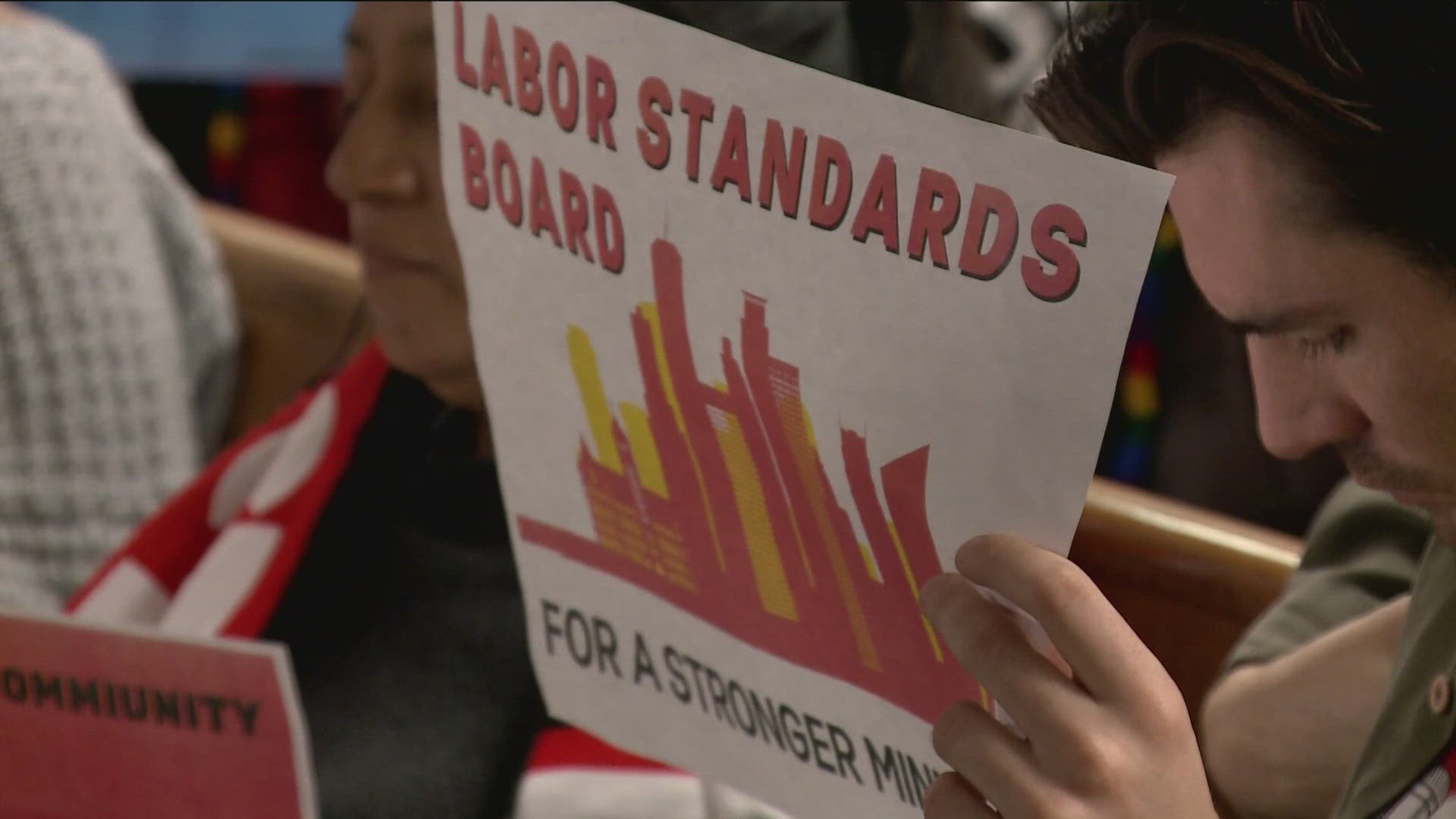Go to any game at the U of M or watch one on TV and you can't escape that familiar fight song, known as the Rouser. The song itself has a pretty interesting history, dating back to 1909 when the University band was looking for a faster, catchier tune to get fans on their feat. "Hail Minnesota," according to the old story was just too slow moving to get fans aroused.The Band decided to sponsor a songwriting contest, and the Minneapolis Tribune and the University Daily made it interesting with a $100 prize. A local church choir director, Floyd Hutsell, cashed in with a ditty for the generation. At University Archives on campus you can still find original copies of the 1909 Minneapolis Tribune special section which has the sheet music, complete with lyrics.But, speaking of those lyrics, what about that phrase in the Rouser, "Rah-rah-rah for Ski-U-Mah?" Some viewers have been wondering what that means, and frankly so have we. So we asked Gopher fans.At a recent U of M women's basketball game, as the pep band played the Rouser and other fight songs, we queried the crowd. One fan offered, "You have to be a U of M graduate and know the secret handshake to get the answer to that!"Then he added, "Actually I think it's one of those things that's made up and doesn't mean anything."Another fan admitted she's been saying it for years but never knew what it meant.But one Gopher diehard, clad in Gold and Maroon, said with absolute authority, "It's a Sioux war cry. Dakotah to be exact. Yes!"Many sources do point to a Native American origin. According to the 1928 book History of Minnesota Football, U of M Rugby captain John Adams coined the phrase in 1884. It seems that Adams and teammates were looking for a more original cheer than the Princeton cheer their rugby coach had employed on campus. Adams, the book says, had heard Sioux boys yell "ski-yoo!" when they won canoe races on Lake Pepin. He took that as the Sioux word for victory, or exultation. Adams and a co-captain added the "mah" to make it rhyme with "rah" and created "Ski-U-Mah!"End of story, right? Well not quite.We consulted four different Dakotah-Lakotah language specialists, and all of them agreed that the word "Ski-U" or "Ski-yoo" or "Ski-oo" are not Sioux victory cries or the Sioux word for winning.Among those we asked were Chris Leif at Prairie Island, Glen Wasicuna at Mdewakanton Sioux Community and Neil Cantemaza McKay at the University of Minnesota Department of American Indian Studies. Jim Thunderhawk, who teaches native languages at the Heart of the Earth Charter School in Minneapolis, agreed to give us a little primer."Oh-hee-yah" said Thunderhawk, means "to win" in his dialect. "Oh-hee-un-yum, oh-hee-oohn-yum," Thunderhawk continued, "That would be like we won."Thunderhawk conceded that direct translations from Native American languages are not always easy to do, because the words being spoken always reflect the context – the situation and the physical surroundings. However, he could not imagine Sioux boys winning a canoe race and yelling "Ski-yoo!" at least rhyming with "sky" and "you" as it's now pronounced at Gopher games.But Thunderhawk allowed that "Ski-yoo" may have just been a nonverbal exclamation, the way we now yell "Whoo-hoo!" when we have reason to celebrate something.And, there's one other possibility."Schkee ooh poh! Or Scheee ooh!" Thunderhawk volunteered, was a phrase that could have been misheard as "Skee-yoo" by the rugby players."Oooh, means come. Or it can mean to come," explained Thunderhawk, "And Scheeh, or scheen-shay means try hard."He said the Sioux boys may have been urging the other boys to try harder, and may have yelled "try harder, come on" in their native tongue.So, since "try hard, come on" works as a rousing yell, you can probably go on saying "Ski-U-Mah!" and believing it's based loosely on Dakotah Sioux.Or, if you prefer the real Sioux words for winning, you can try Jim Thunderhawk's new version, "Rah rah rah! Oh-hee-yah!"Now you know.By John Croman, KARE 11 News
I’ve Been Wondering: Ski-U-Mah?
Go to any game at the U of M or watch one on TV and you can’t escape that familiar fight song, known

